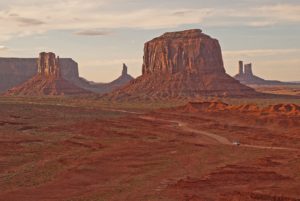
Native American communities are often overlooked. Though they represent nearly 3 percent of the US population, they have historically received roughly 0.5 percent of philanthropic dollars. To help address this, PEAK has been a part of a tribal entities working group, facilitated by TechSoup, to identify and amplify equitable funding practices with respect to Native communities.
Launched in 2020 to promote inclusive grantmaking practices, participants include leaders from Native-led nonprofits such as the Native Ways Federation, First Nations Development Institute, and Return to the Heart Foundation, funders that support Native communities such as the W.K. Kellogg Foundation and NoVo Foundation, and philanthropic support organizations such as the National Center on Philanthropy and the Law, and International Funders for Indigenous Peoples, and Native Verify. And as we focus our attention on Native American heritage during the month of November, we are pleased to share some of the insights the group has developed.
The core goals of the working group are to
- better understand the legal landscape for funding tribes and Native-led nonprofits, focusing on charitable entities that fall outside of the 501(c)(3) public charity rubric;
- increase the sector’s understanding of intermediaries such as fiscal sponsors and donor collaboratives that empower Native-led charitable work; and
- communicate the effort’s work to a larger community so that increased awareness leads to more funding to a broader set of communities and initiatives.
These are some of our early findings:
- Grants can and are being made directly to tribes and tribal entities, such as those recognized under section 7871 of the Internal Revenue Code. Tribes are sovereign nations and thus one should consult the rules around funding government agencies when considering a direct grant. (For more information, read First Nations Development Institute’s “Charitable and Sovereign: Understanding Tribal 7871 Organizations.”)
- Native-led fiscal sponsors are an important vehicle for grantmakers whose grantmaking is restricted to funding 501(c)(3) public charities.
- Expenditure responsibility is a solid option for charitable activities where an entity being considered is not easily classifiable.
As always, check with counsel before making grants.
These findings point to a need to amplify grantmakers that are skillfully navigating such assumed legal complexities. One foundation that has expanded its scope is the Northwest Area Foundation. Under the leadership of President and CEO Kevin Walker, Northwest in 2012 committed to allocating 40 percent of its grant and program-related investment budget to Native-led charities, a commitment that’s now been in place for a decade.
Other foundations are finding ways to support tribes directly or Native-led nonprofits that fall outside of the 501(c)(3) structure, particularly if this will ensure that funding directly supports Native communities.
With this in mind, we need your help. This working group wants to collect and share practices of other PEAK member grantmakers so that they can be replicated throughout the sector, where appropriate.
Specifically, we’d like to know your thoughts on the following questions:
- Which of your foundations are providing support to Native communities?
- Are there innovative practices your foundation has established in support of tribes or Native-led activities you’d be willing to share? This might include:
- the types of organizations your foundation supports;
- unique ways by which a grant to a Native-led organization has been negotiated;
- language that your foundation included or excluded in a grant letter or, as was the case with one foundation we interviewed, where a grant letter was eliminated altogether;
- differences in the way your foundation solicits or negotiates grant proposals with tribes or Native-led nonprofits;
- modifications you made to your foundation’s reporting practices to reflect engagement with a sovereign nation; or
- any other inspiring ways you’ve supported Native Americans.
- Do you have questions or challenges you’d like the group to tackle?
- What other ideas do you or your colleagues have for how funders can improve their practices? Who else should we be talking to?
- How can PEAK and the tribal entities working group continue to educate itself and the philanthropic community?
This is the start of an effort that we hope will grow and expand to other stakeholders seeking to increase the quantity and quality of funding to Native-led organizations in responsible ways. This November, if you are a funder who empowers Native-led nonprofit organizations and their communities, we encourage you to share your story and amplify the impact to American Indians, Alaska Natives, and Native Hawaiians.
And if you have insights you want to share or want to get involved in this work, feel free to email Kyle Reis.
About the Authors
This article was originally published by PEAK Grantmaking. PEAK Grantmaking is a member-led association of philanthropy professionals leading the way in advancing equitable, effective grantmaking practices. Together, we are transforming philanthropy. Learn more at peakgrantmaking.org and follow @PEAKgrantmaking on Twitter and LinkedIn.
Dolores Estrada is chief operating officer at PEAK Grantmaking.
Kyle Reis is board chair of the Reis Foundation, a family foundation focused on justice for under-represented communities. He also serves as senior director at TechSoup.
